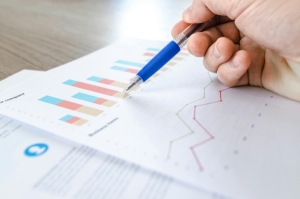New Fiocruz Study Analyzes the Cost of Alcohol Consumption in Brazil
Novembro 22, 2024New Fiocruz Study Analyzes the Cost of Alcohol Consumption in Brazil
A new study reveals that alcohol consumption in Brazil generates up to R$18.8 billion in annual costs, highlighting the urgency for preventive policies.
The study (1), conducted by the Oswaldo Cruz Foundation (Fiocruz), aimed to estimate the economic costs of alcohol consumption in Brazil, addressing both direct and indirect costs to society. Using public health data and scientific literature, the research estimated the financial impacts of alcohol consumption in the country in 2019.
The key findings indicated that the total costs attributable to alcohol consumption ranged from R$10.1 billion to R$18.8 billion. These costs were divided into direct costs, such as hospitalizations and outpatient procedures, which ranged from R$483 million to R$1.1 billion, and indirect costs, estimated between R$9.7 billion and R$17.7 billion, which include lost productivity due to absenteeism, premature deaths, and social security expenditures. Additionally, alcohol-attributable deaths were estimated to range from 47,900 to 104,800 in the year.
Another key point in the analysis is the increasing prevalence of alcohol consumption among Brazilians, with a sharp rise among women and an early onset during adolescence, leading to a significant burden of disease and death. Cardiovascular diseases, cancers, and alcohol-related accidents are some of the leading causes of hospitalizations and alcohol-attributable deaths. To support these points, the study uses data from the 2019 PNS (National Health Survey), Vigitel, Datasus, and the World Health Organization (WHO). It is important to highlight that these data on the increasing alcohol consumption over the years are significant, even though this study focused only on 2019. Thus, the cost analysis is framed under the perspective that such expenditures are likely to continue to rise.
The study presents several limitations related to the statistical model used, but these limitations, given the available data, incorporate the best evidence and approximations to adjust the analysis to the Brazilian population. Another point is that the morbidity and mortality data were obtained from Datasus, the Ministry of Health database, which may underestimate the actual scale of alcohol-related problems, especially in cases where alcohol may not be recorded as the direct cause of hospitalization. In terms of costs, the direct cost of primary health care and family expenses could not be estimated, and the indirect cost of variables such as "presenteeism" was also not included. Despite these limitations, it should be emphasized that the analysis is robust and supported by scientific literature.
In summary, the findings highlight a significant economic and social burden from alcohol consumption in Brazil, suggesting the need for public policies to control harmful use, such as those presented by the WHO in 2018 through the SAFER initiative.
References:
- Nilson, E. Estimação dos custos diretos e indiretos atribuíveis ao consumo de álcool no Brasil. Fiocruz, 2024.


